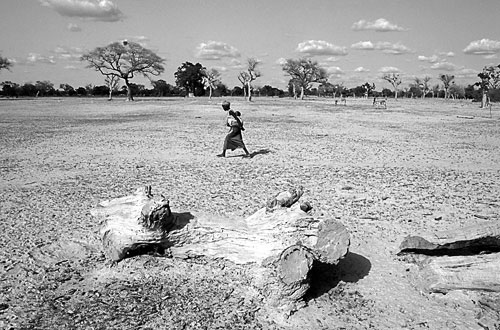...ti saluto dai paesi di domani
che sono visioni
di anime contadine
in volo per il mondo...
“Anime salve”
Fabrizio De Andrè e Ivano Fossati |
Even the most recent international summit on climate change (which took place last December in Copenhagen) was a colossal failure, and yet another demonstration of the inability to take charge of international politics in a serious of emergencies that affect the environmental balance of the planet. The summit, however, was also the occasion for a new step forward in the practical politics from below that a careful observer of social movements as Boaventura de Sousa Santos calls "cosmopolitanism of the oppressed", based on the experiences and struggles of the network movements advocate of a counter-hegemonic globalization (see, in this regard, the law and social emancipation, Open City, 2008).
Among these struggles and movements is undoubtedly a significant role played by the movement of indigenous peoples, just landed on European soil at the summit on climate. The Guarani of Brazil, the Mapuche of Chile, the Maya of Guatemala, but also the Sami of Finland, the Nenet in Russia, the Penan of Borneo and Ogiek in Kenya are just a few of the many indigenous peoples who have decided to come back denouncing an untenable situation and the historical debt (and now environmental) that have been against them. It is not the first time that this happens.

 Food security and sovereignty
Food security and sovereignty
It is a pity, because in this case, as has become usual, the vast and diverse archipelago of movements representing the indigenous peoples had prepared properly for the occasion, and it had made not a few concrete demands and proposals. In April 2009, in fact, indigenous movements were up together in Alaska, in the Indigenous Peoples' Global Summit on Climate Change, after which it was approved a document named Anchorage Declaration (named after the town where the meeting was held). In it (recoverable in full official version at the web www.indigenoussummit.com ) lists not only the concerns, alerts and denunciations of indigenous peoples on how climate change is likely to compromise them in the most drastic, but also proposals and concrete paths, and the offer to become partners and co-actors in a place that appears today in the eyes of more as needed.

